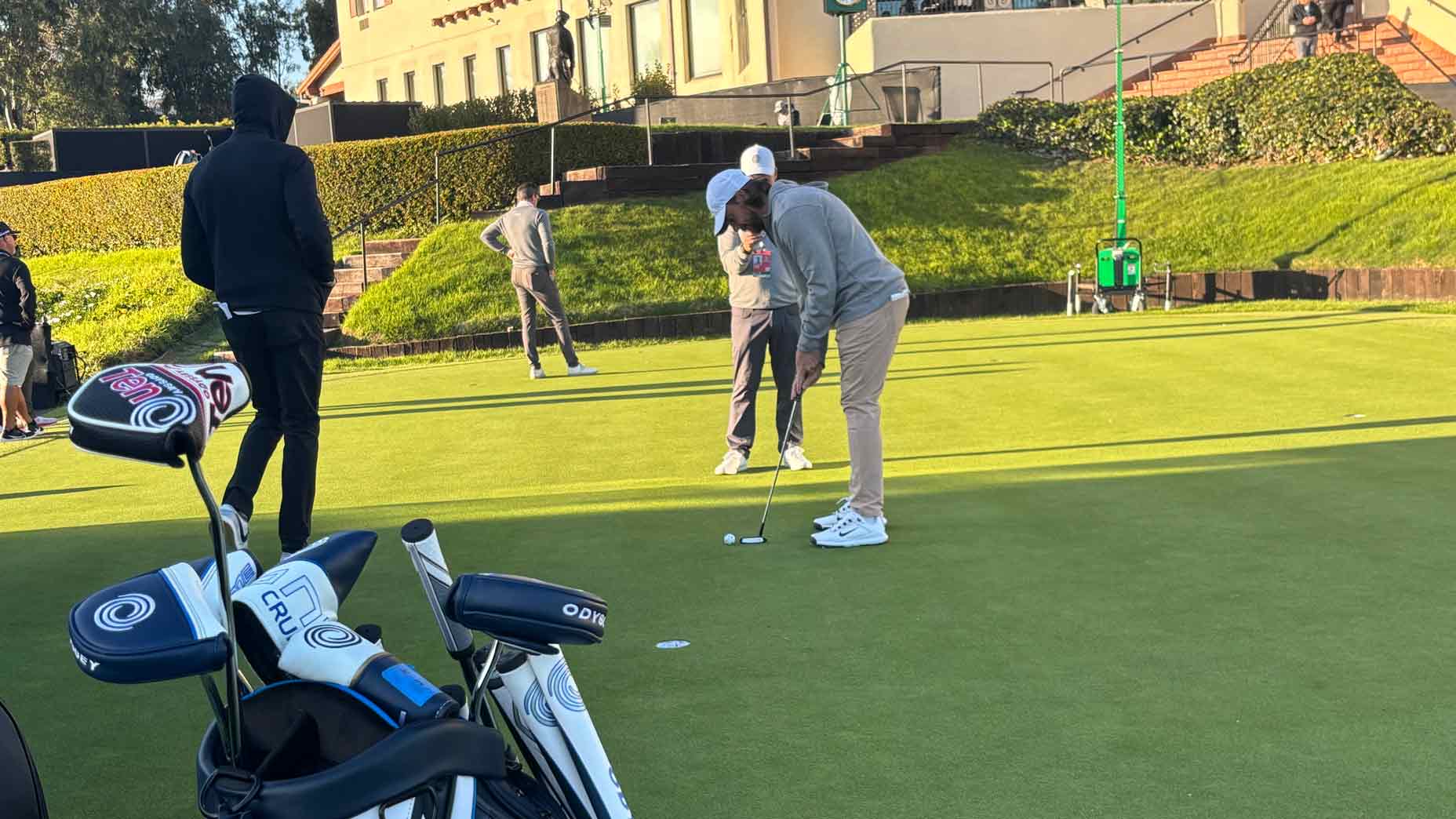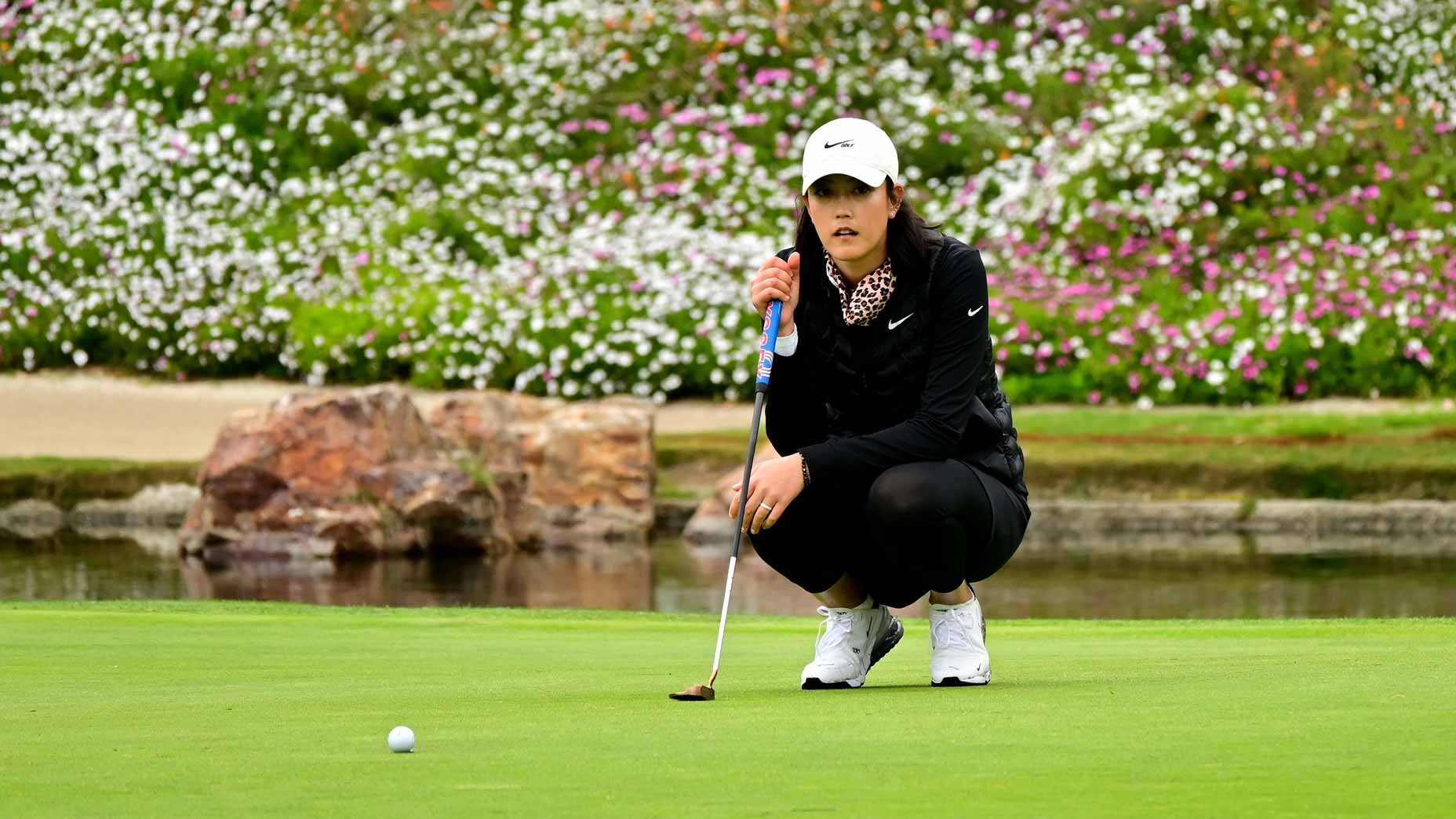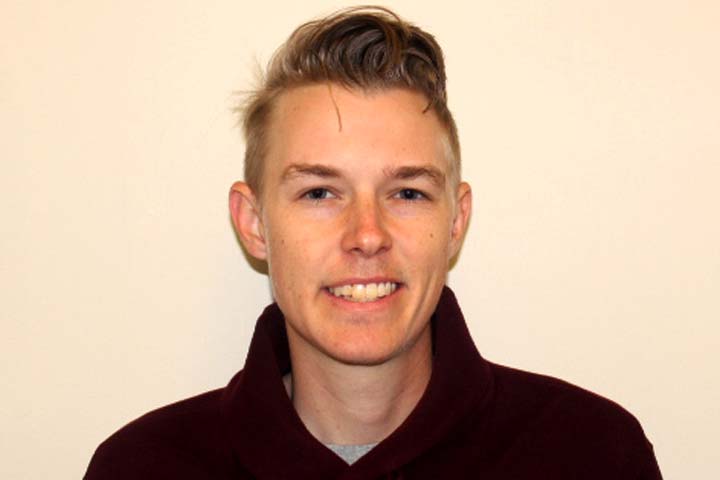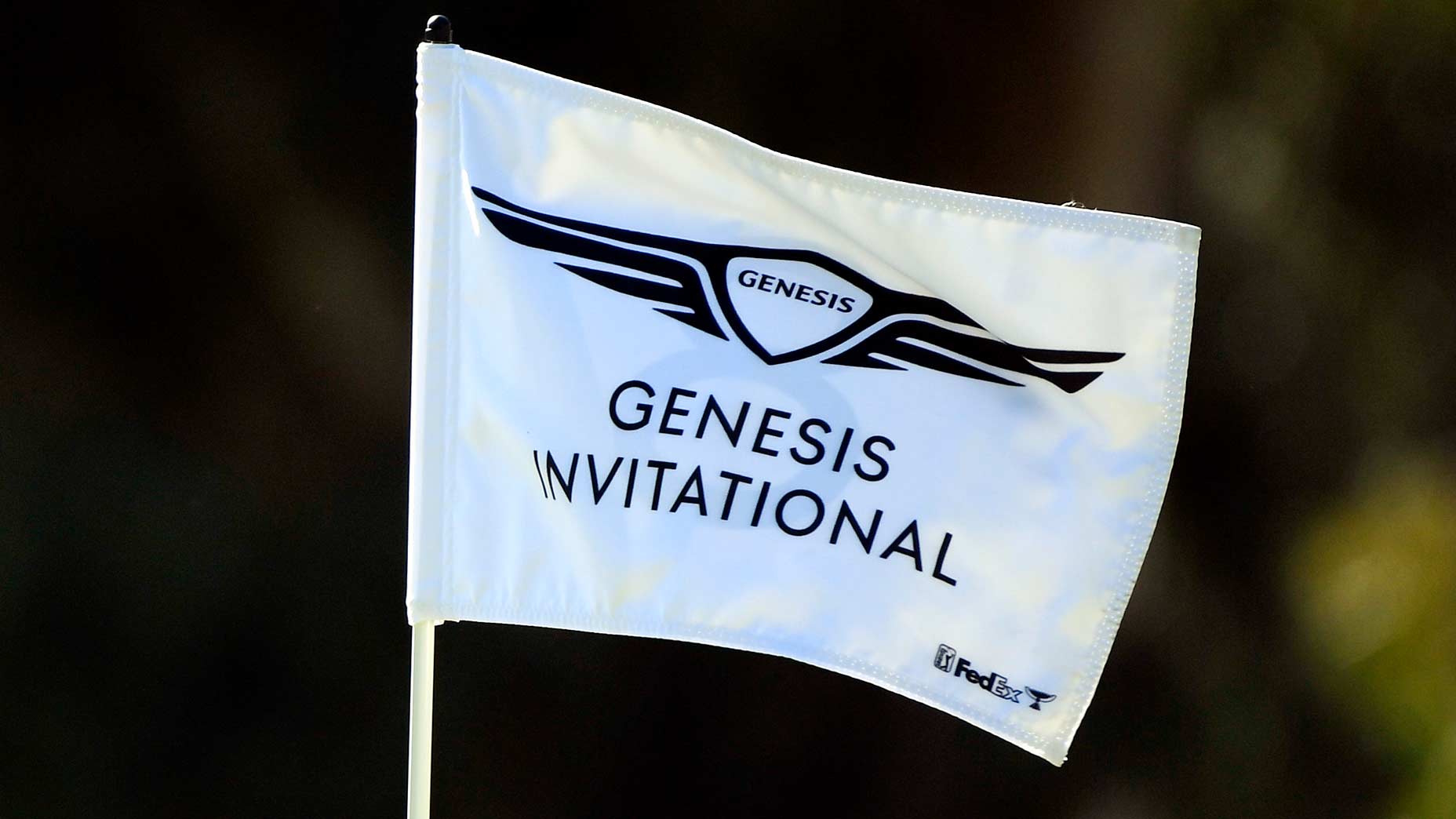
Tour pros are meticulous in their practice routines.
Zephyr Melton
PACIFIC PALISADES, Calif. — With long shadows casting from the eucalyptus trees around Riviera Country Club, Tommy Fleetwood stands on the practice green rolling putts. Phil Kenyon, the renowned putting coach, looks on, clutching an electronic level in his hands.
The practice green is nearly empty at this time of day. Save for Kenyon, Fleetwood and his caddie (Ian Finnis), the only stragglers are a handful of equipment reps lugging staff bags filled with putters down the hill to the trucks in the distance.
It’s peaceful in this last hour before the sun dips below the horizon — perfect for a golfer looking to hone their craft. For Fleetwood, the craft involves rolling a 1.7-inch ball into a 4.5-inch hole.
For much of the Englishman’s career, putting has been a strong suit of his game. He’s ranked inside the top 40 in SG: Putting four times in the last six seasons, including a high-water mark of 14th last year. However, two events into the 2024 campaign, the magic with the flatstick hasn’t quite been there. With eight competitive rounds under his belt, he’s losing over half a stroke per round on the greens in the new year. The sample size might be small, but Fleetwood is taking no chances — he’s set on getting these numbers back to their usual shine.
Kenyon drops a ball on the Poa annua some six feet from the nearest cup, then places the level in between the two, careful not to let Fleetwood (or Finnis) see the reading. Fleetwood stands with his feet straddling the path between his ball and the hole, then shuffles forward and repeats the process. Finnis does the same.
“Feels like one,” Fleetwood says. “Maybe one and a half.”
“One and a half,” Finnis says. “And a little up hill.”
To the uninformed, it sounds like the two are speaking in code. What they’re actually relaying is the slope they feel with their feet. One equals one percent — a putt that shouldn’t break too much. The method is called AimPoint, and it’s one of the most popular green-reading techniques in pro golf.
Fleetwood takes his hand and holds it out in front of his face. While he does this, he closes one eye and holds up his pointer finger. One percent means one finger outside the hole — that’s where he’ll aim his putt.
Fleetwood points the black sharpie line on his ball at a spot just outside the hole. He goes through his entire pre-putt routine and then steps up to the ball. He takes a final look at the hole and then strokes back and through. The ball rolls along the surface before disappearing into the cup.
Kenyon grabs another ball and goes to a different area of the green, starting the process once again as the sun dips lower in the sky. They’ll be here until it feels like Fleetwood can’t miss — or the sun completely disappears in the horizon. The end of another day in the life of a professional golfer.









